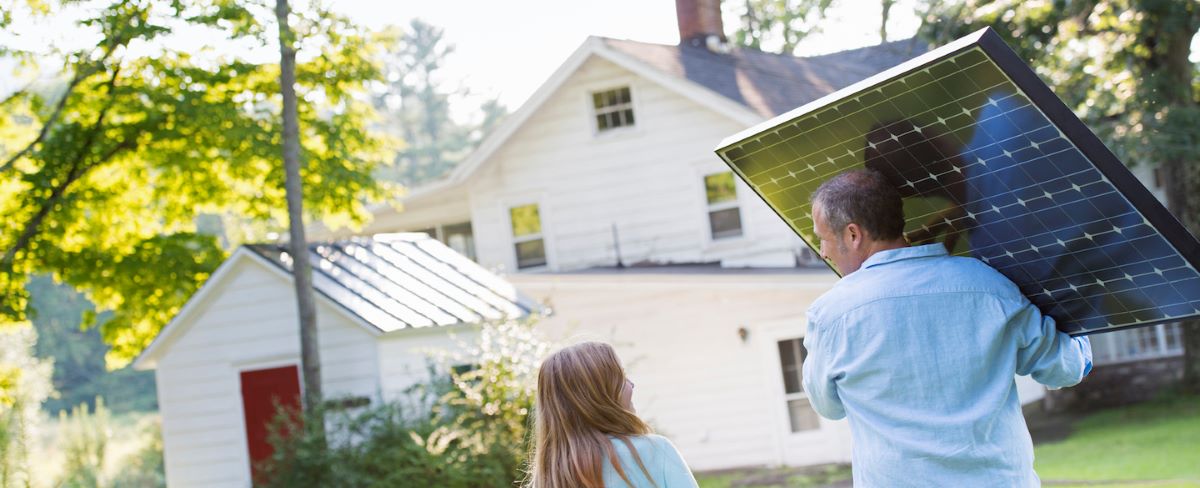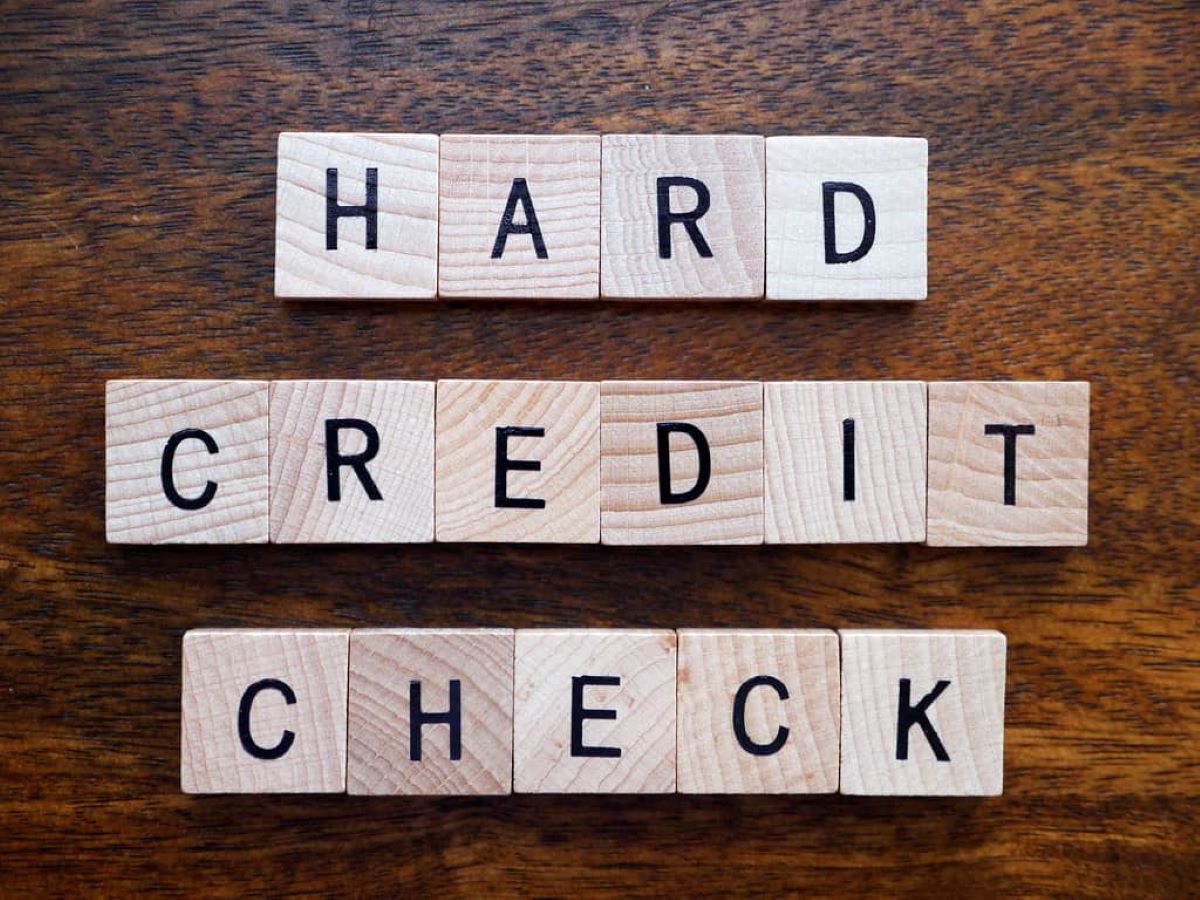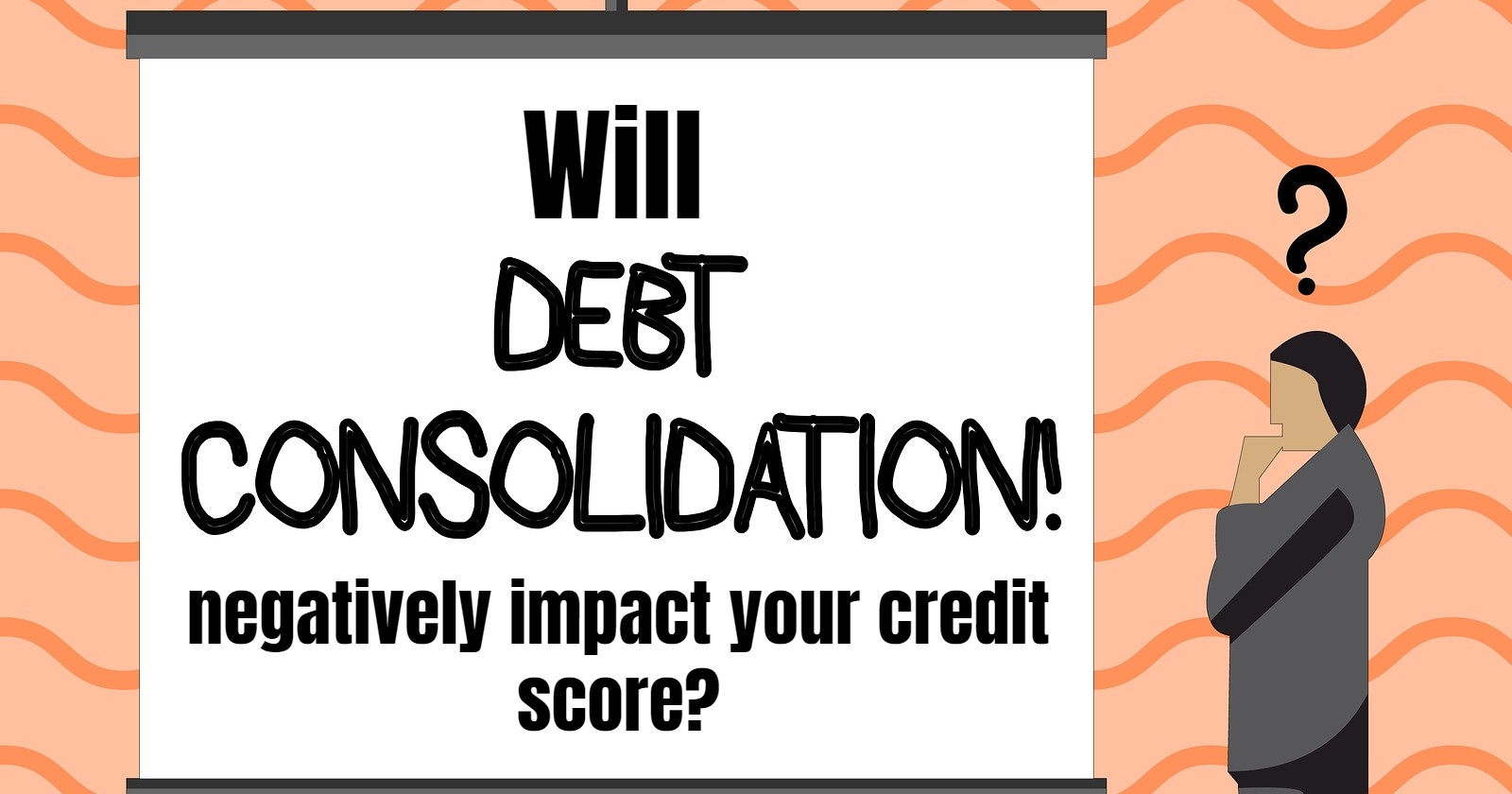

Finance
How Does A Solar Loan Affect Credit Score
Published: October 23, 2023
Finance your solar installation with a loan and learn how it can impact your credit score. Discover the benefits and considerations before making a decision.
(Many of the links in this article redirect to a specific reviewed product. Your purchase of these products through affiliate links helps to generate commission for LiveWell, at no extra cost. Learn more)
Table of Contents
Introduction
Welcome to the world of solar loans, where renewable energy meets financial investment. Solar loans have emerged as a popular solution for homeowners looking to harness the power of the sun while reducing their carbon footprint. With the increasing demand for sustainable energy sources, solar panels have become more accessible than ever. However, the upfront costs of installation can be daunting for many homeowners. This is where solar loans come into play.
A solar loan is a specialized financing option that allows homeowners to borrow money to cover the upfront costs of installing solar panels. With this loan, homeowners can spread out the cost of the solar panel system over time, making it more affordable and manageable. The loan is typically repaid in monthly installments, similar to other types of loans.
Solar loans provide an attractive alternative to traditional solar lease or power purchase agreement (PPA) options. Unlike leases or PPAs, solar loans allow homeowners to take advantage of the substantial financial benefits of owning a solar system. Through a solar loan, homeowners can enjoy the long-term savings on their electricity bills, the potential for earning solar tax credits, and the added property value that comes with owning a solar-powered home.
With the rapid advancements in solar technology, the demand for solar loans has skyrocketed. More and more financial institutions are recognizing the potential of solar investments and are offering competitive loan terms and interest rates to homeowners. These favorable loan options have made solar energy an attainable and affordable option for many households.
In this article, we will explore the world of solar loans in detail. We will discuss how solar loans work, their impact on credit scores, the factors that affect credit scores, as well as the benefits and risks associated with them. By the end, you will have a comprehensive understanding of solar loans and be equipped to make an informed decision about whether they are the right choice for you.
Overview of Solar Loans
Solar loans offer homeowners a convenient and cost-effective way to finance the installation of solar panels. These loans are specifically designed to cover the upfront costs of purchasing and installing solar energy systems, making it easier for homeowners to transition to clean, renewable energy.
One of the key advantages of solar loans is the ability to own the solar panel system outright. Unlike solar leases or power purchase agreements (PPAs), where homeowners essentially rent the solar panels, solar loans allow homeowners to build equity in their solar energy system. This means that as you make loan payments, you are progressively increasing your ownership stake in the system, ultimately leading to greater financial benefits.
When considering a solar loan, it’s important to understand the different types available. The two primary types of solar loans are secured loans and unsecured loans. Secured loans require collateral, such as your home, which can enable you to secure a lower interest rate. On the other hand, unsecured loans do not require collateral but typically come with higher interest rates.
It’s also important to consider the loan term when choosing a solar loan. Shorter-term loans generally have higher monthly payments but result in more significant savings over time due to lower interest costs. Longer-term loans, on the other hand, have lower monthly payments but may result in higher overall interest costs. Finding the right loan term for your needs requires careful consideration of your budget and long-term financial goals.
Solar loans can also be structured as either fixed-rate or variable-rate loans. Fixed-rate loans offer a consistent interest rate throughout the loan term, providing stability and predictability. Variable-rate loans, on the other hand, have interest rates that can fluctuate over time, potentially resulting in savings or increased costs depending on market conditions. Understanding the pros and cons of each type of loan can help you make an informed decision.
Furthermore, solar loans may come with specific eligibility requirements and conditions. Lenders may assess factors such as credit score, income, and debt-to-income ratio in determining loan approval and interest rates. It is essential to be aware of these requirements and ensure that you meet them before applying for a solar loan.
In the next section, we will delve into the specifics of how solar loans work, including the loan application process, approval, and disbursement of funds. Understanding these details will provide you with a comprehensive understanding of how solar loans can be accessed and utilized to finance your solar panel installation.
How Solar Loans Work
Solar loans work similarly to traditional loans, with the key difference being that the funds are specifically used for the installation of solar panels. Understanding how solar loans work is crucial when considering financing options for your solar energy system.
The first step in obtaining a solar loan is to research and compare different lenders. Look for lenders that specialize in solar financing or have experience in renewable energy loans. Consider factors such as interest rates, loan terms, and eligibility requirements to find the best fit for your needs.
Once you have chosen a lender, you will need to gather the necessary documentation and complete the loan application. Lenders typically require information such as proof of income, credit history, and details related to your solar panel system, such as the estimated cost of installation and the expected energy production.
After submitting your application, the lender will review your information and make a decision. If approved, you will receive a loan offer outlining the loan amount, interest rate, loan term, and monthly payment amount. It is essential to carefully review the terms and conditions of the loan offer before accepting it.
Once you have accepted the loan offer, the lender will disburse the funds directly to the solar panel installation company. This allows the installation process to begin, as the funds will cover the purchase and installation of the solar panels and related equipment.
As the borrower, you will start making monthly loan payments to the lender. These payments typically begin shortly after the installation is complete. The loan term can range from a few years to several decades, depending on the terms of the loan and your preferences.
It is important to note that some solar loans come with the option to prepay or make additional payments towards the loan principal. This can help you pay off the loan sooner and reduce the overall interest costs.
Additionally, many solar loans come with the benefit of the federal investment tax credit (ITC). The ITC allows homeowners to deduct a percentage of the installation costs from their federal income taxes. This can help offset the expense of the solar loan and provide additional savings.
Overall, solar loans provide a straightforward and accessible way for homeowners to finance their solar panel installations. By understanding the loan process and researching different lenders, homeowners can secure affordable financing and reap the long-term benefits of solar energy.
Impact on Credit Score
One common concern when considering a solar loan is the potential impact on your credit score. Like any other type of loan, solar loans can have both positive and negative effects on your credit score, depending on how you handle the loan.
When you apply for a solar loan, the lender will typically perform a credit check to assess your creditworthiness. This credit check, also known as a hard inquiry, can have a slight negative impact on your credit score. However, this impact is usually minimal and short-lived, lasting only a few months.
Once you have been approved for the loan and begin making regular, on-time payments, your credit score can improve over time. Payment history is one of the most significant factors that contribute to your credit score, so demonstrating responsible borrowing behavior can have a positive impact. Paying your solar loan on time each month can help boost your credit score and demonstrate your ability to handle debt responsibly.
On the other hand, if you miss or make late payments on your solar loan, it can have a negative impact on your credit score. Late or missed payments can be reported to credit bureaus, resulting in a lower credit score. It is crucial to stay on top of your loan payments and make them in a timely manner to avoid any negative consequences.
In addition to payment history, the amount of debt you carry also affects your credit score. Taking out a solar loan will increase your overall debt load, which can initially have a negative impact on your credit score. However, as you make regular payments and reduce the loan balance, your credit score may improve over time.
It is worth noting that the impact on your credit score is not limited to the solar loan itself. Applying for multiple loans or lines of credit within a short period can have a negative impact on your credit score. Therefore, if you are considering other types of loans or credit cards in conjunction with a solar loan, it’s important to be mindful of the potential impact on your creditworthiness.
In summary, a solar loan can have both positive and negative effects on your credit score. By making regular, on-time payments and managing your overall debt responsibly, you can improve your credit score over time. However, missed payments or taking on excessive debt can have a negative impact. It is essential to carefully manage your solar loan and stay proactive in maintaining a healthy credit score.
Factors that Affect Credit Score
When it comes to understanding your credit score, it’s essential to be aware of the various factors that influence it. Your credit score is a three-digit number that reflects your creditworthiness and serves as a key determinant in obtaining loans and financing, including solar loans. Here are the primary factors that impact your credit score:
1. Payment History: Your payment history is the most crucial factor affecting your credit score. It accounts for approximately 35% of your overall score. Making on-time payments consistently helps boost your credit score, while late payments or defaulting on loans can have a significantly negative impact.
2. Credit Utilization: This factor considers the amount of credit you’re currently using compared to your total available credit. Keeping your credit utilization ratio low, ideally below 30%, demonstrates responsible credit management and positively affects your credit score.
3. Length of Credit History: The length of time you have had credit accounts contributes to approximately 15% of your credit score. A longer credit history generally reflects more stability, which can be beneficial for your credit score.
4. Credit Mix: Having a diverse mix of credit accounts, such as credit cards, loans, and mortgages, can improve your credit score. Lenders like to see that you can handle different types of credit responsibly. However, it’s important to only take on credit that you can comfortably manage.
5. New Credit: Opening new credit accounts, such as applying for a solar loan, can impact your credit score. When you apply for new credit, it results in a hard inquiry on your credit report, which can temporarily lower your score. It’s essential to be mindful of how many new credit inquiries you have, as multiple inquiries within a short period can signal financial instability.
6. Credit History: A longer credit history demonstrates a track record of responsible borrowing and payment behavior. It’s important to establish credit early and maintain your credit accounts to build a positive credit history.
Understanding these factors and their relative importance can help you make informed decisions when it comes to managing your credit. When applying for a solar loan, it’s crucial to ensure your financial situation is stable and that taking on the loan aligns with your overall credit management strategy.
By practicing responsible financial habits, such as making timely payments, keeping credit utilization low, and managing a diverse mix of credit accounts, you can maintain and improve your credit score. This, in turn, can have a positive impact on your ability to obtain favorable loan terms, including solar loans, in the future.
Benefits of Solar Loans
Solar loans offer several significant benefits for homeowners who are looking to invest in renewable energy. By financing the installation of solar panels through a solar loan, homeowners can enjoy the following advantages:
1. Ownership of the Solar System: Unlike solar leases or power purchase agreements (PPAs), solar loans allow homeowners to own the solar panel system outright. This means that you reap the long-term financial benefits of solar energy, including reduced electricity bills and potential tax credits.
2. Increased Property Value: Installing solar panels can increase the value of your property. A study conducted by the U.S. Department of Energy’s Lawrence Berkeley National Laboratory found that homebuyers are willing to pay a premium for homes equipped with solar panels, making solar installations a valuable investment.
3. Long-Term Energy Savings: Solar loans enable homeowners to produce their own electricity, reducing their reliance on traditional energy sources. By generating clean and renewable energy, homeowners can significantly lower their monthly utility bills over time, resulting in substantial energy savings.
4. Environmental Benefits: Solar energy is a clean and renewable source of power that helps reduce greenhouse gas emissions, combat climate change, and contribute to a more sustainable future. By utilizing solar energy through a solar panel system, homeowners can actively participate in environmental conservation efforts.
5. Flexibility in Financing Options: Solar loans offer a range of flexible financing options, allowing homeowners to choose loan terms that align with their budget and financial goals. Whether it’s a short-term loan with higher monthly payments or a longer-term loan with lower monthly payments, homeowners have the flexibility to customize their loan to suit their needs.
6. Access to Incentives: By going solar through a solar loan, homeowners may be eligible for various incentives and rebates. For example, the federal investment tax credit (ITC) allows homeowners to deduct a percentage of the installation costs from their federal income taxes. State and local incentives may also be available, further reducing the overall cost of the solar panel system.
7. Positive Environmental Impact: By adopting solar energy, homeowners actively contribute to reducing their carbon footprint and promoting a cleaner environment. Solar energy is a sustainable and renewable energy source that helps decrease dependence on fossil fuels and helps combat climate change.
These benefits make solar loans an attractive option for homeowners who want to embrace clean energy while enjoying long-term financial savings. It is important to thoroughly research and compare solar loans from different lenders to ensure you are getting the best terms and interest rates that suit your financial needs.
Risks of Solar Loans
While solar loans offer numerous benefits, it is essential to be aware of the potential risks associated with them. Understanding these risks can help you make an informed decision and mitigate any potential challenges that may arise. Here are some of the common risks of solar loans:
1. Interest Rates: Depending on the terms of your solar loan, the interest rates can be higher compared to other types of loans. Higher interest rates can result in increased overall costs over the life of the loan. It is important to carefully review the loan terms and compare interest rates from different lenders to secure the most favorable rate.
2. Loan Default: If you are unable to keep up with the loan payments, it can lead to loan default. Defaulting on your solar loan can have serious consequences, including damage to your credit score and potential legal action from the lender. It is essential to assess your financial capabilities and ensure that you can comfortably afford the loan payments before committing to a solar loan.
3. Installation Concerns: Solar panel installations require professional expertise and proper installation techniques to ensure optimal performance. In some cases, subpar installation can lead to system malfunctions or underperformance. It is crucial to choose a reputable and experienced solar panel installation company to minimize the risk of installation-related issues.
4. Equipment Warranty and Maintenance: Solar panel systems typically come with warranties for a specified period. However, it is important to understand the terms and conditions of the warranty and any maintenance requirements. Failure to adhere to maintenance guidelines or the expiration of the warranty can result in additional expenses for repairs or replacements.
5. Lengthy Payback Period: Solar loans usually have lengthy repayment periods, depending on the loan terms. For some homeowners, this may result in a longer time frame to recoup the upfront costs and realize the full financial benefits of the solar panel system. It is important to consider the payback period and calculate the potential savings over the life of the system to ensure it aligns with your financial goals.
6. Market Uncertainty: Like any investment, there is an element of uncertainty when it comes to the solar energy market. Changes in government policies, technological advancements, or shifts in market dynamics can impact the financial viability of solar systems. It is important to stay informed about industry trends and potential changes that may affect the long-term financial benefits of your solar panel system.
Despite these risks, many homeowners find that the benefits outweigh the potential challenges associated with solar loans. By thoroughly researching and carefully considering all aspects, you can make an informed decision that aligns with your financial goals and environmental values. Consulting with a reputable solar installer and a financial advisor can also provide valuable insights and guidance in navigating the risks and benefits of solar loans.
Conclusion
Solar loans offer homeowners a practical and accessible way to transition to clean, renewable energy while enjoying long-term financial benefits. By spreading out the cost of solar panel installation over time, homeowners can take advantage of the affordability and sustainability of solar energy.
Throughout this article, we have explored the world of solar loans, discussing their benefits, risks, and the impact on credit scores. Solar loans provide homeowners with the opportunity to own their solar panel systems, increase property value, and save on electricity bills over time. They also offer flexibility in financing options and access to incentives that further improve the financial feasibility of going solar.
However, it is important to be aware of potential risks such as higher interest rates, loan default, installation concerns, and lengthy payback periods. By understanding and mitigating these risks, homeowners can make informed decisions and ensure a smooth and successful transition to solar energy.
When considering a solar loan, it is crucial to thoroughly research and compare lenders, loan terms, and interest rates. Understanding your financial capabilities and choosing the right loan structure for your needs is key to maximizing the benefits of solar financing.
Ultimately, solar loans offer a pathway to not only reduce reliance on traditional energy sources but also contribute to a sustainable future. By generating clean energy from the sun, homeowners can reduce their carbon footprint, save money on utility bills, and increase the value of their property.
Whether you are driven by environmental consciousness, financial savings, or a combination of both, exploring solar loans as a financing option for your solar panel installation can be a rewarding journey. Remember to consider your credit score, assess the risks, and consult with solar experts and financial advisors to make a well-informed decision.
Embrace the power of the sun, harness the benefits of solar energy, and pave the way for a greener and brighter future with a solar loan.














